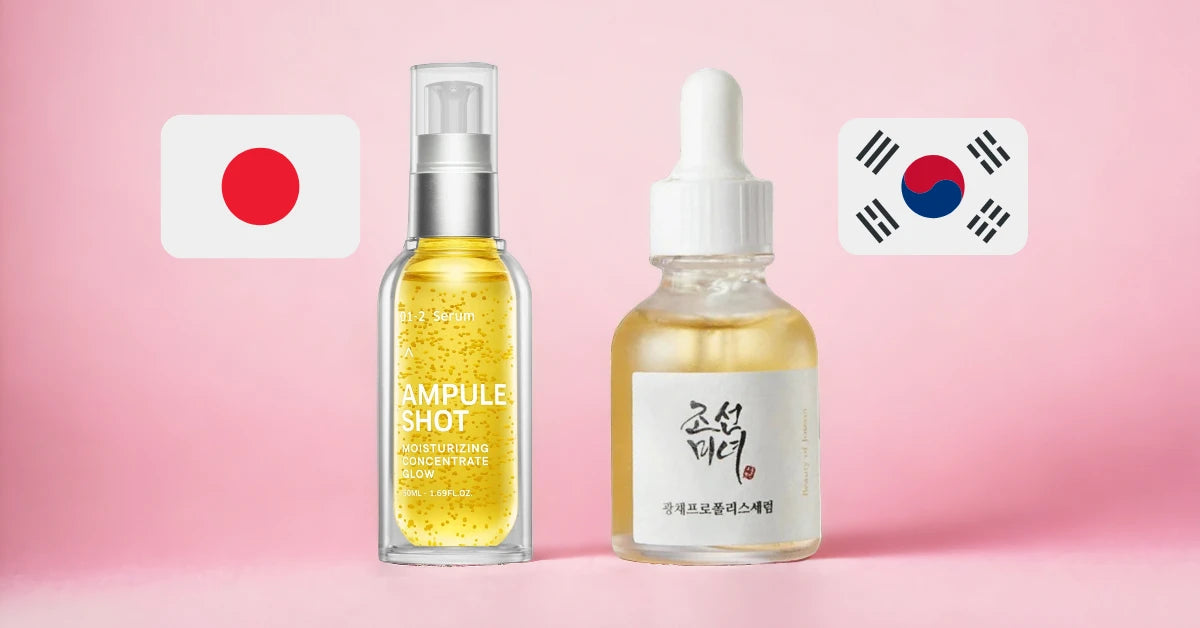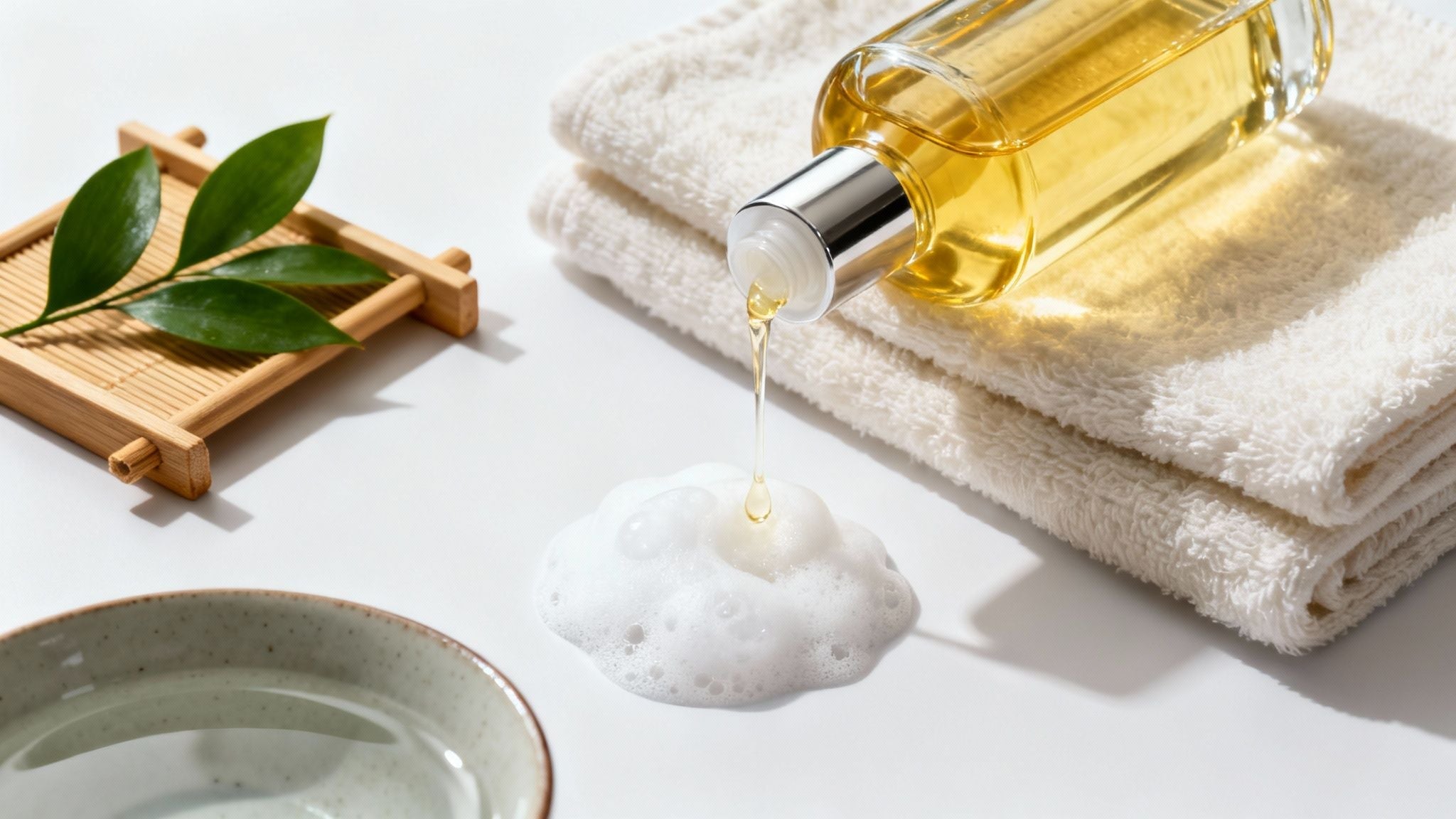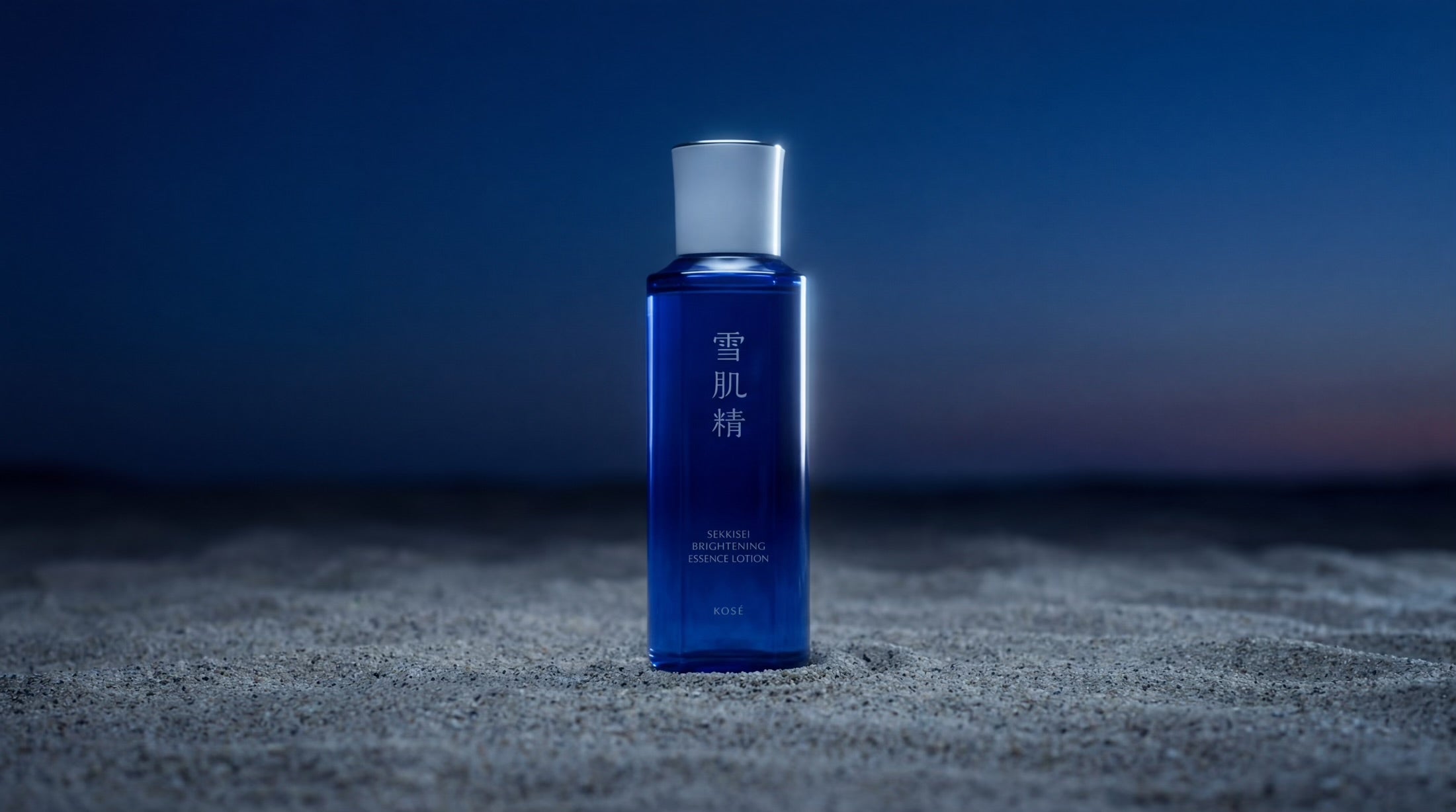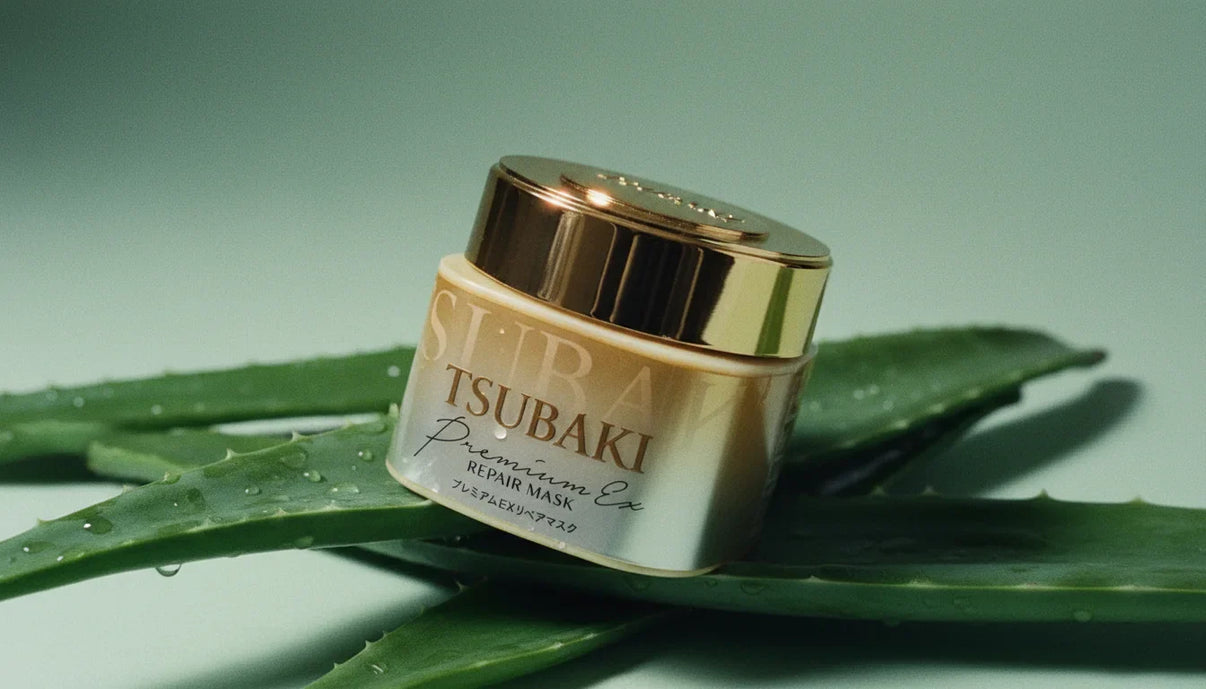Understanding Japanese Skincare
Japanese skincare is renowned for its minimalistic yet effective approach. Embracing the concept of 'less is more,' Japanese skincare routines typically involve gentle cleansers, hydrating toners, lightweight moisturizers, and high protection sunscreens. The emphasis is on simplicity and quality, with many products incorporating natural ingredients such as green tea, rice bran, and seaweed.

Key Features of Korean Skincare
Korean skincare, on the other hand, is characterized by its multi-step regimen designed to achieve flawless and radiant skin. The routine often includes double cleansing, exfoliation, toning, essence, serums, sheet masks, eye cream, moisturizer, and SPF. Korean skincare products are known for their innovative formulations, incorporating ingredients like snail mucin, ginseng, and hyaluronic acid.
The Variations in Approach
While both Japanese and Korean skincare focus on achieving healthy, glowing skin, the main difference lies in their approaches. Japanese skincare prioritizes simplicity and functionality, aiming to maintain skin health with fewer products. In contrast, Korean skincare embraces a more elaborate routine, focusing on hydration, brightening, and targeted treatments through multiple layers of products.
Comparing Ingredients
Japanese skincare often features natural ingredients like camellia oil, rice extract, and sake, known for their nourishing and soothing properties. These ingredients are chosen for their ability to enhance the skin's natural beauty and maintain a healthy complexion.
On the other hand, Korean skincare incorporates a wide range of cutting-edge ingredients such as snail mucin, bee venom, and propolis, which are believed to provide anti-aging, hydrating, and brightening benefits. These innovative ingredients have gained popularity for their transformative effects on the skin.
Customization and Personalization
One of the key aspects of Korean skincare is its emphasis on customization. The 'K-beauty' philosophy encourages individuals to tailor their skincare routine based on their skin type, concerns, and goals. This personalized approach allows for a bespoke regimen that addresses specific needs.
Japanese skincare, while more streamlined, also offers customization through products that cater to different skin types and concerns. The focus is on efficacy and simplicity, providing options for individuals seeking a straightforward yet effective routine.
Choosing the Right Skincare for You
When deciding between Japanese and Korean skincare, it's essential to consider your skin type, concerns, and preferences. Those with sensitive skin or who prefer a straightforward routine may lean towards Japanese products, while individuals looking for a pampering experience and diverse product options may opt for Korean skincare.
Final Thoughts
Ultimately, whether you choose Japanese skincare or Korean skincare, the key is to listen to your skin's needs and create a routine that works best for you. Both traditions offer valuable insights and innovative products that can help you achieve healthy and radiant skin. By understanding the differences between Japanese and Korean skincare, you can make informed choices that enhance your skincare journey and promote skin health.




Share:
Cleansing Balm: A Special Step to Your Skincare Routine
In-Depth Analysis of Shiseido Fino Hair Mask Ingredients